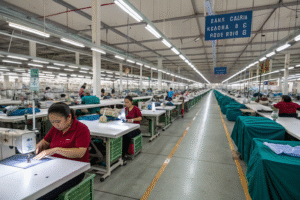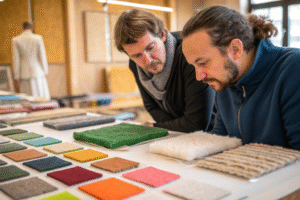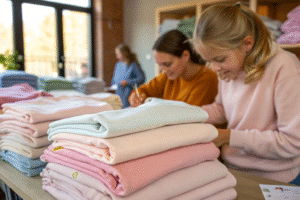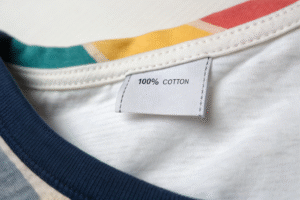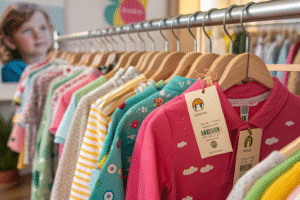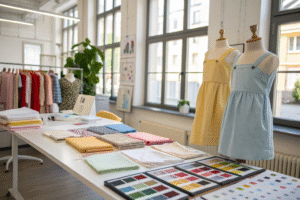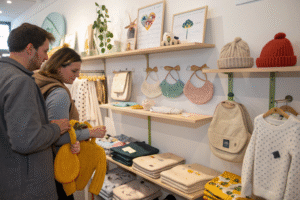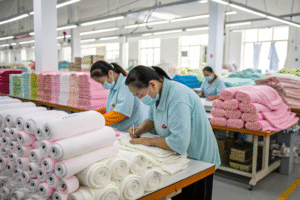Dreaming of starting your own kidswear brand? It’s an exciting industry—but also competitive and full of details you can’t afford to skip.
To start a kidswear brand, define your niche, build your designs, find the right manufacturer, and launch with strong branding and smart marketing.
I’ve helped many brands launch their first collection—here’s a step-by-step guide to help you turn your idea into a business that parents will trust and love.
How to Define Your Kidswear Brand Identity and Niche?
Before you design your first T-shirt, you need to decide who you’re designing for—and why your brand should exist.
Start by defining your kidswear niche, customer type, values, and visual identity. This creates a clear brand voice that connects with buyers.
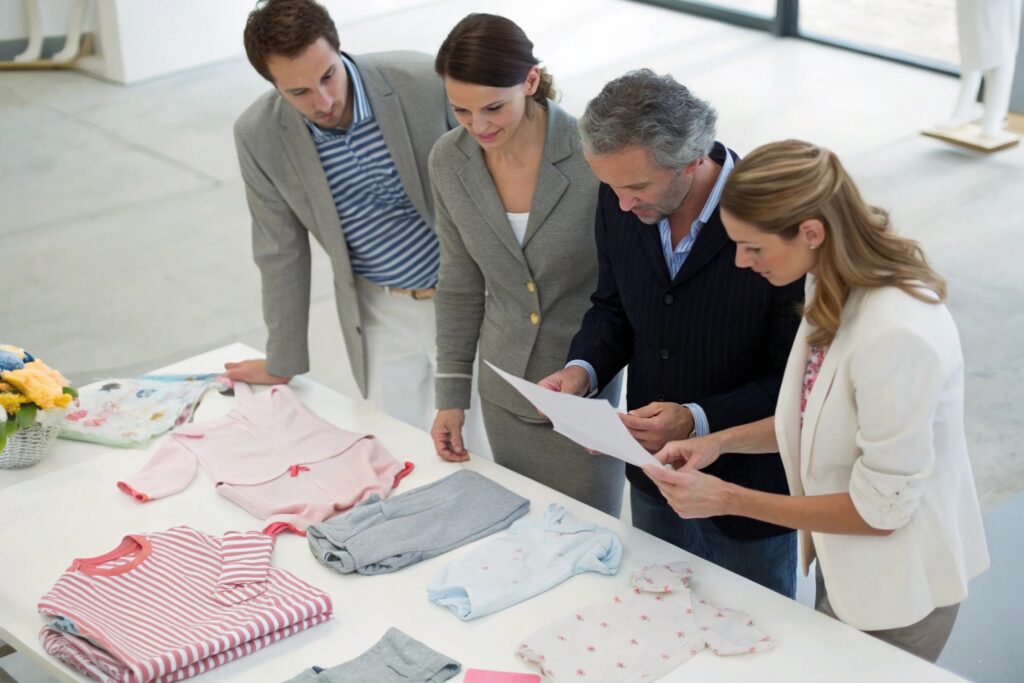
What key questions help shape your brand identity?
Answering these helps define your direction:
| Question | Purpose |
|---|---|
| What age group are you serving? | Babywear (0–24M)? Toddlers (2–5)? |
| What style defines your brand? | Modern, minimal, playful, bold? |
| Who is your target buyer? | Eco moms? Grandparents? Gift shoppers? |
| What values matter to you? | Organic? Gender-neutral? Handmade? |
| What price point is realistic? | Budget-friendly or premium luxury? |
For example, a brand focused on organic baby basics might use soft tones, OEKO-TEX® fabric, and natural imagery. A bold streetwear-style kids brand would lean into color and edge.
How do you stand out in a crowded kidswear market?
Find your unique angle:
- Specialize in a style (e.g., vintage, boho, or minimalist)
- Cater to a gap in the market (e.g., adaptive clothing for kids with disabilities)
- Build a story (e.g., mother-owned, local-made, eco-conscious)
- Offer matching family sets or custom personalization
Brands that define themselves clearly from day one are easier to grow—and easier for buyers to remember.
What You Need to Launch a Kids Clothing Line?
Starting a kidswear brand doesn’t mean opening a factory. But you do need a clear plan, working designs, and the right tools.
To launch your first line, you’ll need a business plan, tech packs or sketches, samples, branding materials, and a way to sell (online or offline).

What are the key steps before launching production?
Here’s your startup checklist:
| Task | Why It Matters |
|---|---|
| Create a business plan | Clarifies your goals, market, and pricing |
| Sketch or design your line | Defines your product visually |
| Develop tech packs | Provides measurements and instructions for manufacturers |
| Choose fabric and trims | Sets the tone for comfort and price |
| Register your brand and logo | Protects your name and builds identity |
| Build your website or online shop | Creates your selling platform |
You don’t need 20 pieces to start. Many successful brands launch with just 3–5 styles.
What tools or people can help bring your vision to life?
- Freelance designers (for sketches, prints, or tech packs)
- Pattern makers (if your factory doesn’t offer this)
- Sample maker or manufacturer (to test your ideas)
- Branding specialist (for logos, colors, packaging)
- Small business consultant or mentor (for planning and growth)
At Fumao, we often work directly with first-time founders to help them build out their line from sketches and Pinterest boards.
How to Find Manufacturers for Custom Kidswear?
Manufacturing is one of the biggest steps—and biggest risks. You need a partner who understands your style, your quality standards, and your market.
To find the right kidswear manufacturer, research suppliers with babywear experience, check sample quality, confirm MOQ and timelines, and build communication early.
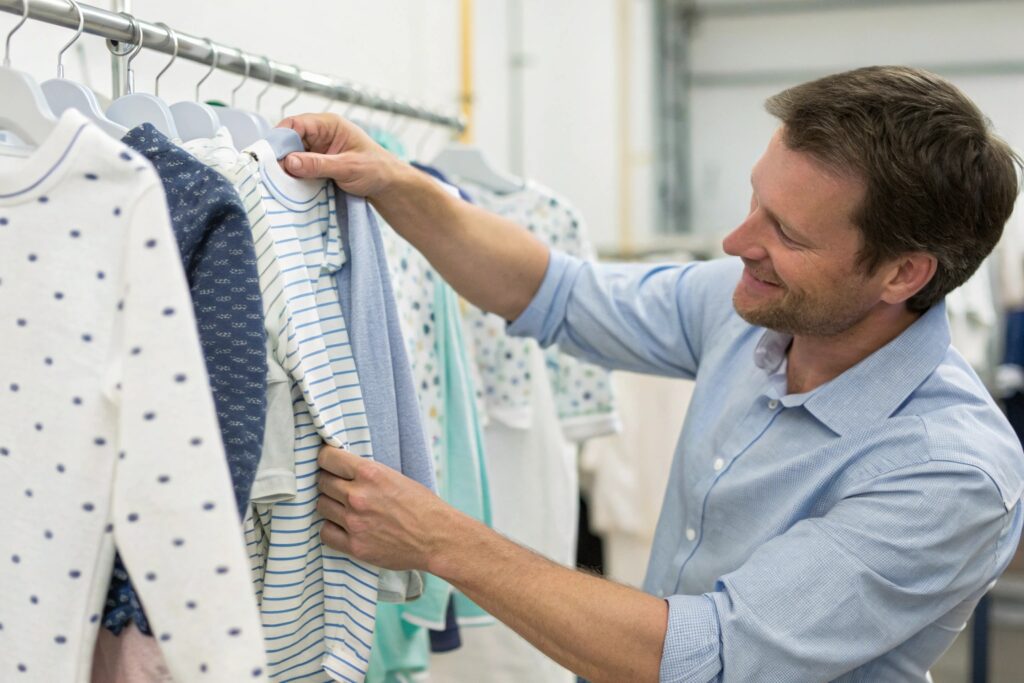
What should you look for in a kidswear clothing manufacturer?
Here’s what matters:
| Factor | Why It’s Important |
|---|---|
| Kidswear experience | Ensures safe sizing, stitching, trims |
| Low minimum order quantities | Lets you start small |
| Sampling support | Allows prototyping before bulk |
| CPSIA/OEKO-TEX® compliance | Essential for safety and U.S. regulations |
| Clear communication | Prevents costly errors |
Fumao Clothing specializes in baby and kidswear. We offer full OEM support—from design to delivery—with small MOQs and fast turnaround.
Where can you find trusted factories?
- Google search (look for factories, not trading companies)
- LinkedIn or trade platforms like Alibaba (ask for certifications)
- Sourcing fairs like Global Sources or Magic Las Vegas
- Referrals from other brands or designers
- Industry communities and Facebook groups
Start with sample orders and clear tech packs. A good factory will guide you through the process—not just take your money.
Tips for Marketing and Selling Your First Collection?
Making baby clothes is one thing—selling them is another. Your launch plan needs to build trust and excitement before the first sale.
Use a combination of storytelling, social media, strong visuals, and a simple online shop to build attention and convert visitors into loyal customers.
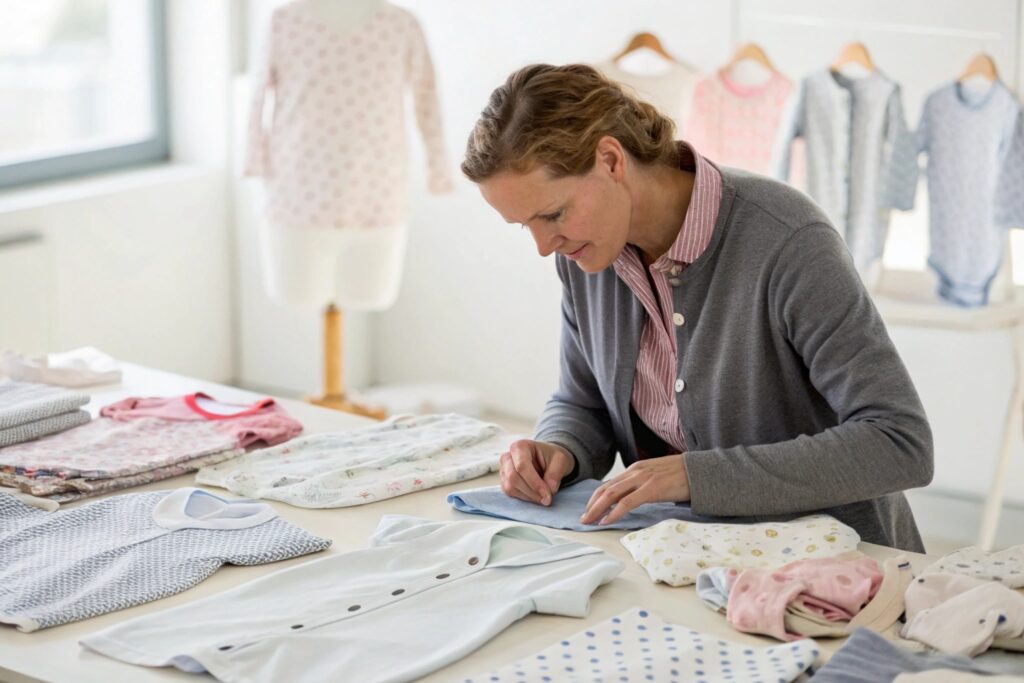
What low-cost marketing tactics work well for babywear startups?
Try these proven methods:
| Strategy | How It Helps |
|---|---|
| Instagram content | Build community, show designs in use |
| Brand story videos | Connect emotionally with parents |
| Influencer gifting | Reach engaged niche audiences |
| Email pre-launch signup | Build hype and early buyers |
| Pop-up or baby fair booth | Meet customers face-to-face |
| Etsy or Faire listings | Reach buyers without heavy ad spend |
Tell your story clearly: why you started, what problem you solve, how your product helps parents. That’s what sells.
How do you price and position your brand at launch?
- Research competitors in your niche
- Use cost-based pricing (COGS x 2.5–3x for retail)
- Highlight your materials, safety, and design
- Offer bundles or sets to increase average order value
- Start small with clear messaging—then test and adapt
At Fumao, we support new brands with branded hangtags, packaging, and even starter photo samples so they can launch with a polished look.
Conclusion
Starting your kidswear brand is challenging—but with clear focus, the right partners, and a strong story, it’s absolutely possible. Take the first step—your brand could become the next name parents trust.


